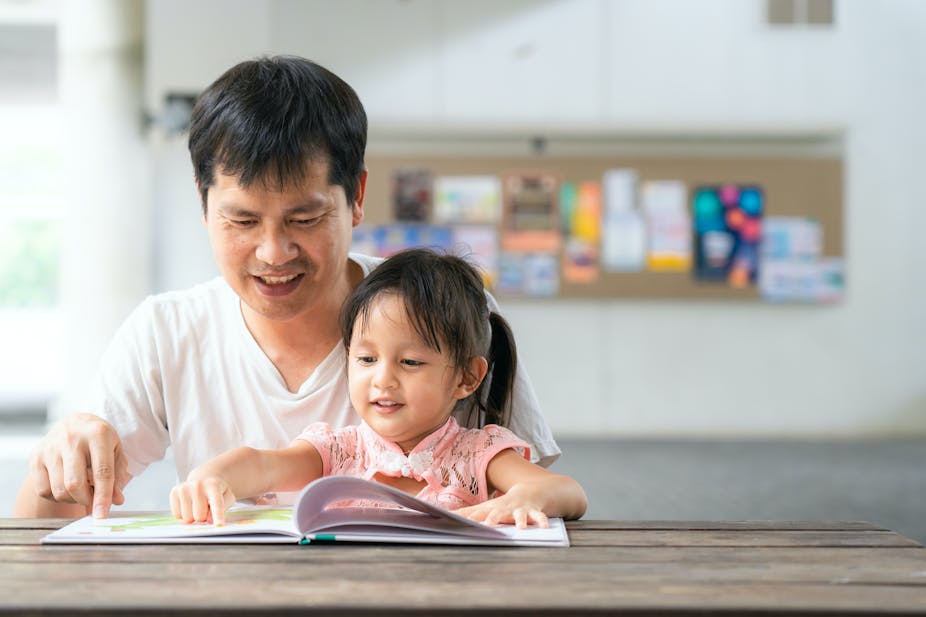Indonesia does not have a proper tool to measure the learning progress of children at elementary schools.
The country holds annual standardised national exams, but these only measure learning outcomes in the form of scores and are only conducted at the end of each education level.
The Program for International Student Assessment (PISA), a triennial education survey of students around the world, also provides data on Indonesia but it only measures learning outcomes among 15-year-olds.
Toolkits such as the Early Grade Reading Assessment (EGRA) have been used by developing countries to measure literacy and numeracy at the primary level.
In fact, a 2014 EGRA survey was conducted in Indonesia as part of a collaboration between a number of international organisations and the Indonesian government.
However, it is not a periodic survey and can only be administered by trained education experts and government officials.
This lack of easily accessible early-grade assessment tools results in Indonesian teachers using educational materials that often do not match students’ competence.
Responding to this issue, Indonesian researchers at the Centre for Education and Policy Studies (PSPK) have designed a simple assessment toolkit for elementary school children, known as “Pemantik” (Pengukuran Mandiri Numerasi dan Literasi PSPK).
It is primarily designed to be used by parents and communities. The tool also helps them monitor child learning outside formal school settings.
How Pemantik works
The Pemantik toolkit is not exactly an original idea. It is adapted from India’s Annual Status of Education Report (ASER). It measures children’s learning outcomes within each grade at the primary level.
Its 2016 edition, for example, was able to show how more than half – around 52.2% – of fifth graders struggled to read a text that a second grader was expected to manage.
The researcher behind Pemantik, Nisa Felicia, says ASER was chosen as the model due to India’s similarity to Indonesia. The two countries are considered developing economies with high levels of educational inequality across their regions.
The assessment is fairly straightforward and measures basic learning skills in literacy and arithmetic.
“Pemantik is a one-on-one test. It’s also paper-based so it has been widely used in rural households too,” Nisa said.
“In the literacy test, for example, children are shown letters in the first stage. If they fail, that means they’re at Level 0. If they get it right, they’re at Level 1.”
The tool further categorises basic literacy into four levels from letters to short paragraphs, and numeracy into five levels from single digits to divisions.

Although the administration is extremely simple, Nisa says the process of designing Pemantik is rigorous, as it has to be adapted for an Indonesian context.
“Words for example. In English there’s school, but we don’t translate it into [Indonesian language] sekolah because it has three syllables. Children at an early age usually can only do two syllables,” she said.
“Which letters, words or diphthongs are appropriate for Indonesian children, that’s where our research comes in.”
From 2016 to 2019, Nisa’s team applied the toolkit in four regions, including Batu in East Java, and the Mentawai Islands in West Sumatra.

Their study yielded some worrying results. There seemed to be little progress in the literacy skills of students going from, for example, fourth to fifth grade.
Similar to the situation in India, the study also found that around 25% of students as high as in the fifth grade still struggled with short paragraphs that a child at the end of the third grade was expected to comfortably understand.
Without the assessment, Nisa said, a lot of children can easily pass to the next grade even though they don’t have the required skills.
“Many teachers only follow the curriculum and textbook, but don’t pay attention to the child’s learning progress and end up not teaching at the right level,” she said.
“That’s why Pemantik found that a lot of students still struggle with topics that are meant for grades below them, for instance.”
Empowering the community
Goldy Fariz Dharmawan, a junior researcher at the SMERU Research Institute in Jakarta, says a lot of parents are often unaware of their children’s learning progress.
According to Goldy, an unpublished joint study that his organisation is conducting with the World Bank in West Kalimantan and Eastern Nusa Tenggara indicates parents have a strong desire to participate in their children’s learning process.
However, they lack the resources to do so. Goldy says the Pemantik toolkit fills this gap perfectly.
For example, Nisa told us her team applied the toolkit during a parenting activity at one of Jakarta’s children-friendly parks.
“We tried it once during a parenting activity. We trained mothers to use the toolkit. Some of them were shocked how their children in fifth grade struggled in doing divisions meant for lower grades,” she said.
“This way parents are more aware. Pemantik gives parents and the community the ability to evaluate and monitor schools to improve their teaching methods,” Goldy added.
As this paper-based toolkit is free and is extremely easy to use, Nisa says it’s also perfect for community-led programs such as informal schools or other initiatives in rural areas.
“This means that it doesn’t have to be conducted in a formal education setting. Any community can use this to monitor children in their area or program, as a community-based assessment,” she said.
A number of organisations have used the toolkit in their education initiatives. Among these are international development organisation Food for the Hungry and Rainbow Reading Gardens (Taman Bacaan Pelangi), a non-profit organisation working to establish libraries for children in remote areas of Eastern Indonesia.
“We haven’t had the chance to monitor the use of our toolkit by these organisations, but many of them provide positive feedback. For instance, they found fourth graders who still weren’t able to read,” Nisa said.
“I’m happy because now they know what kind of programs they have to design.”
NOTE: Those who are interested in the toolkit may contact the Centre for Education and Policy Studies (PSPK) through Nisa Felicia (nisa.faridz@pspk.web.id).


